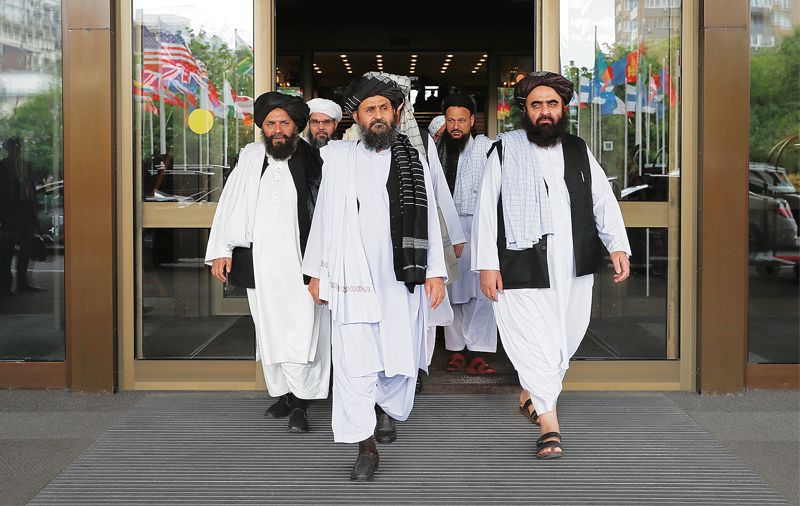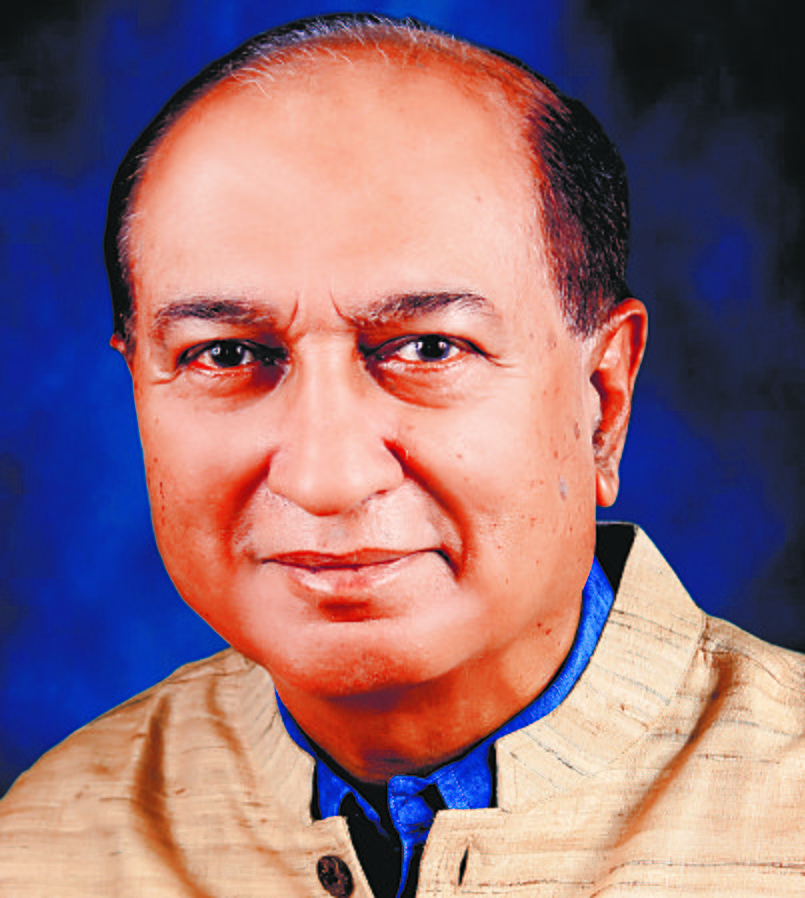
UNSTEADY: Afghanistan is set for a long period of volatility and violence. Reuters
G Parthasarathy
Chancellor, Jammu Central University & Former High Commissioner to Pakistan
INDIA has taken a natural, but seldom used route for dealing with the challenges posed by the ISI-backed Taliban rule in Afghanistan. New Delhi has worked in close collaboration with Afghanistan’s neighbours, with whom India has excellent relations. They are Tajikistan, Turkmenistan, Uzbekistan, Kyrgyzstan and Kazakhstan. As former republics of the Soviet Union, they enjoy Russian support and security guarantees. They also enjoy historical relations with neighbouring Iran. India, Iran and Russia have a history of working together in dealing with the Taliban, even before the US invaded Afghanistan, following the 9/11 attacks. Russia and Iran accepted the Indian invitation, which was not responded to positively by either China or Pakistan. The Pashtun-dominated Taliban, which has no significant political base even among fellow Pashtuns, in either Afghanistan or Pakistan, faces opposition from the Tajiks, Uzbeks, Hazaras, Balochis and others, who constitute over 55% of Afghanistan’s population.
India is now on the same page with Iran and the five Central Asian neighbours of Afghanistan who have serious concerns about Pakistan’s policies.
India and Afghanistan’s neighbours are concerned because the Taliban have created a situation where its ethnic minorities, notably the Tajiks, are seeking refuge in neighbouring countries. Iran feels the fallout of the continuing Taliban persecution of Shia Hazaras in Afghanistan. Adding to the concerns of the neighbours is the huge cache of American arms, now in the possession of the Taliban. India has regular contacts with Afghanistan’s neighbours, as fellow members of the Shanghai Cooperation Organisation. China is now, however, an enthusiastic supporter of the Taliban, with pretences of having good relations with all Central Asian countries. Russia, despite its concerns, would be reluctant to directly take on China on Afghanistan. Pakistan seeks ‘strategic depth’ in Afghanistan and uses Afghan soil as a base for providing haven to terror groups like the LeT and the JeM.
The extent of ISI penetration of the Taliban was evident when the then ISI chief was enjoying international publicity in Kabul, on August 15, as the Taliban was set to seize control of Kabul. Pakistan’s then ISI chief, Lt Gen Faiz Hameed arrived in Kabul and was, no doubt, feeling triumphant, as he had succeeded in forcing the then PM (designate), Mullah Abdul Ghani Baradar, to flee from Kabul to Kandahar, out of fear of being killed by the goons of the home minister (designate), the notorious Taliban leader, Sirajuddin Haqqani. Baradar returned to Kabul later, in the diminished role of deputy PM. Mullah Mohammad Hasan Akhund, one of Taliban’s founders, was named PM. His name figures on a UN terrorist blacklist. Mullah Hibatullah Akhundzada, earlier designated to be the Taliban’s supreme leader, sits in solitary splendour in Kandahar.
The most powerful minister in the Afghan government is interior minister Sirajuddin Haqqani, who was responsible for the largest number of Taliban attacks on the US forces in Afghanistan. He was also associated with Osama bin Laden and the Al-Qaeda. The Haqqani Network is based in North Waziristan in Pakistan’s Pashtun-dominated Khyber Pakhtunkhwa province and operates freely across the Durand Line. Kabul is now administered by Sirajuddin Haqqani’s brother, Khalil-ur-Rahman Haqqani. Sirajuddin Haqqani has a $5 million reward on his head. His family members have been ISI proteges.
China and Pakistan have their own axe to grind in Afghanistan. The Taliban provide strategic depth to Pakistan, enabling it to arm and train its jihadis against India. The Taliban have not questioned Pakistani claims on its borders with Afghanistan on the Durand Line drawn by the British. Pakistan, however, now faces serious problems from the Tehriq-e-Taliban, a section of the Taliban, which refuses to accept the Durand Line. It claims that Afghanistan’s borders extend to the banks of the Indus at Attock. Pashtun tempers rose when Pakistan waged vicious attacks on Pashtun towns and villages. Thousands of tribal Pashtuns fled their homes. While the Taliban have facilitated a dialogue between the Pakistani Taliban and the government, the Pashtuns are not going to forget what transpired.
India is now on the same page with Iran and the five Central Asian neighbours of Afghanistan who have serious concerns about Pakistan’s policies. The New Delhi meeting on November 10 emphasised that Afghanistan’s territory should not be used to shelter, train or finance terror acts. The Central Asian countries and Iran urged the provision of humanitarian assistance to all sections of people in Afghanistan. India has stepped in, offering 50,000 tonnes of wheat and essential medicines. Pakistan has been approached by India for transit facilities for the supplies. After stalling for some time, it reluctantly indicated that transit would be permitted. Afghanistan and the international community should be prepared for continuing nit-picking by Pakistan and delay in transit facilities.
The Taliban have welcomed India’s readiness to supply wheat and called on Pakistan to facilitate its transportation. They are also aware of Chinese ambitions to exploit their vast natural resources, estimated at around $1 trillion. China will seek political and strategic space to get access to the bulk of these resources. Its main problem is that it has treated the Muslim population of Xinjiang brutally. How long can the Taliban, who claim to be champions of Islamic causes worldwide, look the other way? Afghanistan is set for a long period of instability, volatility and violence, including on its borders. Meanwhile, summing up Imran Khan’s problems, veteran Pakistani journalist Hamid Mir recently noted: ‘Khan is determined to secure a second term at any cost. General Bajwa may also like to extend his own term. Lt General Hameed seems to want to succeed him. But soon, the Generals won’t be able to coexist. The Prime Minister may choose between Bajwa and Hameed, but he has no choice between law and lawlessness’.
Join Whatsapp Channel of The Tribune for latest updates.




























